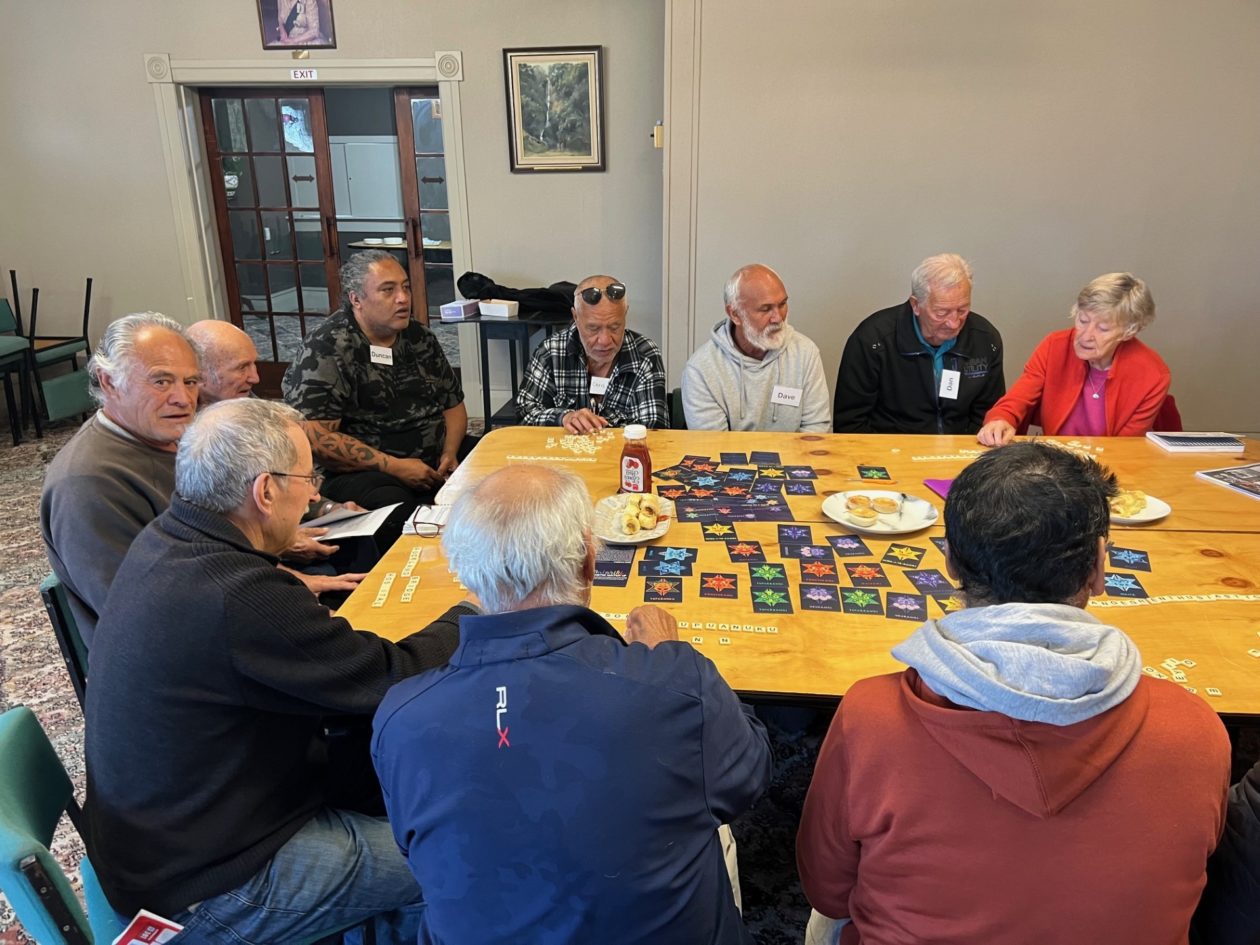Mate wareware recognised as spiritual journey for many whānau

Alzheimers organisations around Aotearoa New Zealand are working in partnership with local iwi to deliver meaningful services to people living with dementia mate wareware and their whānau.
In the Eastern Bay of Plenty, Manager Sue Cave says it’s important to provide a service that is tailored to specific needs and cultures so they can provide the most appropriate support – almost half of the people they support are Māori.
“Some whānau do not perceive mate wareware as an illness or disease, but rather as part of a spiritual journey and as a normal consequence of growing old so it’s important to recognise these beliefs in all we do.”
The team works in a practical way preferring face to face meetings with local iwi. They provide regular education sessions to kaumatua groups, such as the Tūwharetoa Kaumatua Programme and the Ngāti Awa Kaumatua Group. Sue says these are well received and attended.
Some of the feedback from these sessions include:
- “I thoroughly enjoyed the kōrero, interesting topic, tino pai, was an eye opener.”
- “Presentation made me aware of what Alzheimers can look like especially if it happens within my whānau.”
- “I’ve learnt a lot today, having Alzheimers [Eastern Bay of Plenty] here made a big difference to me in my understanding of looking after your brain no matter what age you are.”
“Tailored dementia mate wareware services empower whānau, enhance mana and upholds the dignity of those living with mate wareware,” says Sue.
In the neighbouring Tauranga and Western Bay of Plenty region, Manager Glenn Bradley says while they strive to be culturally responsive in all their services, inadequate funding can make it challenging to provide ongoing cultural services in a sustainable way.
“We are working with multiple Hauora and iwi organisations to share our knowledge and expertise with their staff and their kaumatua groups,” he says.
“So far this year we have we have led nine educational presentations to Hauora staff and iwi kaumatua groups across the local are.
“These have covered large cross section from our smaller, more rural communities such as Otahiwi Marae in Bowentown and Maketu Kaumatua group as well as the urban centres with Huria Tiariaka Kaumatua group and Ngāti Kanu Hauora.”
Meanwhile, in Gisborne/Tairāwhiti, about 50 percent of the people they support are Māori.
Manager Tracy Robinsons says there are kaupapa Māori organisations in the region which provide essential community health services – like Turanga Health and Hauiti Hauora. Tracy’s team are the only local dementia mate wareware specialists which is where they step up.
She says the small, isolated communities outside of Gisborne create some unique challenges in terms of the services available and transport. There is also a huge amount of stigma and whakamā (shame) surrounding a diagnosis which they are tackling through local education and promotion.
“The family tends to close ranks and often by the time they get to us the family are burnt out, often arguing among themselves because of the pressure and the stress, they don’t trust the public health system – so they maybe haven’t accessed as much help as they’re entitled to – and it’s up to us to try and break that down,” she says.
“We do try to go that extra mile. It’s a credit to use if we can build that whanaungatanga (relationship) – that’s what we aim for. We try to make the whole service a big family.”
Over on the west coast, Whanganui Manager Renee Clark says they are working with local iwi by building relationships based on trust and collaboration.
“Local iwi and Māori organisations often invite us to meet with their kaumatua and kaimahi (staff) to share knowledge around mate wareware, and how to live a healthy lifestyle/brain health,” she says.
“Sharing knowledge and understanding around the importance of a diagnosis is crucial for our Māori population.”
The organisation worked with local iwi last calendar year to provide education sessions around dementia mate wareware. These sessions are designed to raise awareness, provide support for carers and whānau.
“By working in partnership with iwi and delivering education, we help ensure that whānau are informed, empowered, and supported. This helped strengthen community awareness and reduces stigma,” says Renee.
While services are at different stages of their partnerships with local iwi, it’s encouraging to see local services respond to the growing needs of their communities.
“By working in a flexible and responsive way we have been able to support the whole whānau, emotionally, practically and spiritually. This helps families manage the dementia mate wareware journey together and reduce carer stress. This in turn helps whānau stay connected and informed,” says Sue.
Caption: Participants at a Cognitive Stimulation Therapy session (CST) in Whakatane recently

